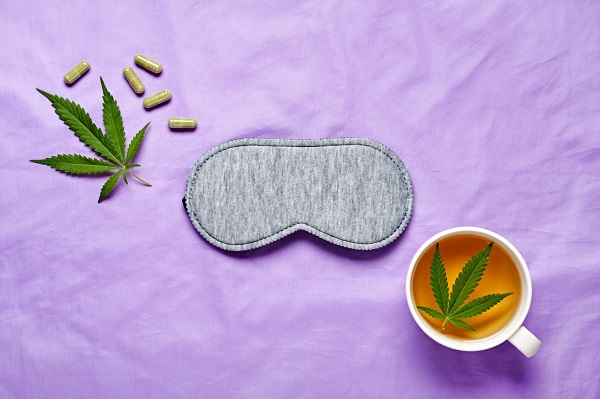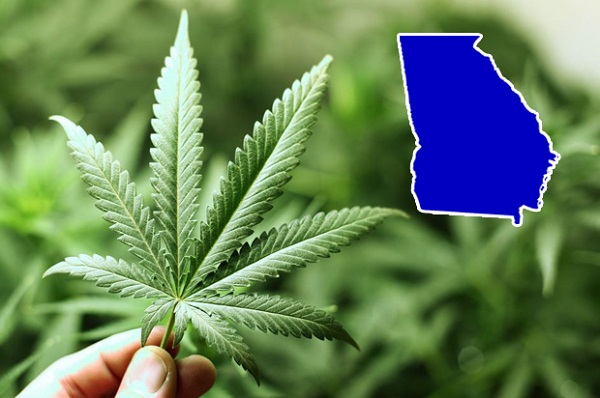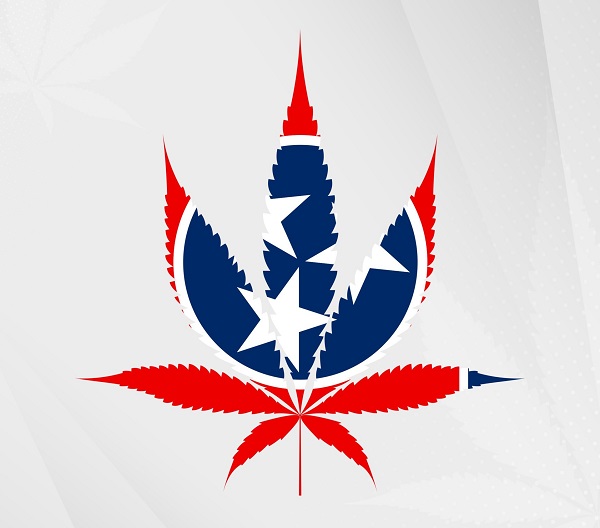THC and melatonin are two compounds that have gained significant attention in recent years due to their potential therapeutic benefits. THC, or tetrahydrocannabinol, is the primary psychoactive component found in cannabis and is known for its ability to produce a “high” sensation. Melatonin, on the other hand, is a hormone produced by the pineal gland that regulates sleep-wake cycles. While these two compounds may seem unrelated at first glance, research has shown that they may interact with each other in various ways, potentially influencing sleep patterns and other physiological processes. In this article, we will explore the relationship between THC and melatonin, examining the scientific evidence behind their effects and discussing the potential implications for their use.
How does melatonin work?
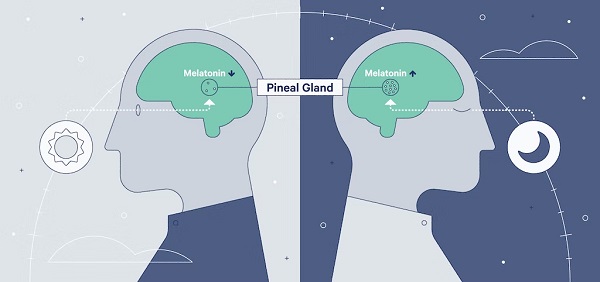
Melatonin is a hormone that is primarily involved in regulating the body’s sleep-wake cycle, also known as the circadian rhythm. The production and release of melatonin are controlled by the suprachiasmatic nucleus (SCN) in the brain, which receives signals from the eyes about the amount of light in the environment.
During the day, when there is ample light, the SCN signals the pineal gland to reduce the production of melatonin. As the evening approaches and light levels decrease, the SCN signals the pineal gland to increase melatonin production, which helps to promote sleepiness and prepare the body for rest. Melatonin levels typically peak during the night and gradually decline towards the morning, signaling the body to wake up and start the day.
In addition to regulating the sleep-wake cycle, melatonin also has other important functions in the body. It has been shown to have antioxidant properties and may help to protect cells from damage caused by free radicals. It also plays a role in regulating body temperature, blood pressure, and immune function.
Who benefits from melatonin?
Melatonin can be beneficial for individuals who have difficulty falling asleep or staying asleep, such as those with insomnia, jet lag, or shift work sleep disorder. It may also be useful for individuals who have an irregular sleep-wake schedule due to various reasons, such as frequent travel or working night shifts.
Melatonin may also be helpful for individuals who experience sleep disturbances as a result of certain medical conditions, such as Parkinson’s disease, depression, or anxiety disorders. Additionally, melatonin may be beneficial for children with certain sleep disorders or neurodevelopmental disorders, such as autism.
It is important to note that while melatonin can be helpful for some individuals, it may not be effective for everyone.
Can melatonin and weed be mixed?
The combination of melatonin and weed, or THC found in marijuana, can have varying effects on an individual’s sleep and overall health. While some people may find that the combination helps them fall asleep faster and stay asleep longer, others may experience negative side effects.
Melatonin is a hormone that helps regulate the body’s sleep-wake cycle, and is commonly used as a sleep aid. THC, on the other hand, is the primary psychoactive component found in marijuana and is known for its ability to produce a “high” sensation.
When used together, melatonin and THC may help to promote relaxation and drowsiness, which can be beneficial for individuals with insomnia or other sleep disorders. However, it is important to note that the effects of THC can vary depending on the individual and the amount used, and may cause impairment and cognitive dysfunction.
Combining melatonin and THC can result in increased drowsiness and impairment, which may affect cognitive function and reaction times. Therefore, it is not recommended to drive or operate heavy machinery while under the influence of this combination.
Moreover, there is limited research on the long-term effects of mixing melatonin and THC, and the potential risks and benefits may vary based on an individual’s health status, medications, and other factors. It is always recommended to consult with a healthcare provider before combining melatonin and THC or any other supplements or medications.
It is also important to note that marijuana use, particularly frequent or heavy use, can have negative effects on sleep quality and overall health. Research has shown that chronic marijuana use can interfere with the body’s natural production of melatonin, leading to disrupted sleep patterns and daytime sleepiness.
While melatonin and THC may be used together for their potential sleep-promoting effects, it is important to exercise caution and consult with a healthcare provider before doing so. The potential risks and benefits may vary based on individual factors, and it is important to prioritize overall health and safety.
Melatonin vs weed for sleep
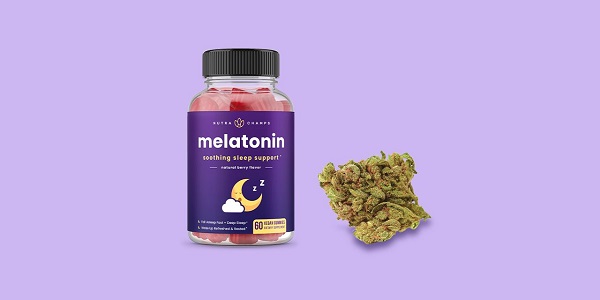
Melatonin and weed are two substances that can be used to promote sleep, but they work in different ways and have different effects on the body.
Melatonin supplements are generally considered safe and effective, and are available over-the-counter in many countries.
Melatonin may be particularly useful for people with circadian rhythm disorders, such as jet lag, shift work disorder, or delayed sleep phase syndrome. These conditions involve disruptions to the body’s natural sleep-wake cycle, and melatonin can help reset the body’s internal clock.
On the other hand, weed or marijuana contains THC, a psychoactive compound that can cause a “high” sensation and affect cognitive function. While some people use weed to help them sleep, the effects of THC on sleep can be complex and depend on several factors, including the dose, timing of use, and individual differences.
Research has shown that THC can decrease the amount of time it takes to fall asleep, but it can also decrease the quality of sleep and increase the likelihood of waking up during the night. Additionally, chronic marijuana use can lead to a tolerance to THC, which can reduce its sleep-promoting effects over time.
Overall, melatonin may be a safer and more effective option for those looking to improve their sleep quality, particularly if they have a sleep disorder or difficulty falling asleep.
Insomnia: what is it, symptoms, causes, treatment

Insomnia is a sleep disorder that is characterized by difficulty falling asleep, staying asleep, or waking up too early and not being able to fall back asleep. It can be acute, lasting a few days or weeks, or chronic, lasting for months or even years.
There are many potential causes of insomnia, including:
- Stress: Worries or concerns about work, family, finances, or other aspects of life can keep you awake at night.
- Anxiety or depression: These conditions can cause or worsen insomnia.
- Medical conditions: Chronic pain, respiratory problems, or neurological conditions can interfere with sleep.
- Medications: Certain medications, such as antidepressants, can cause insomnia.
- Lifestyle factors: Poor sleep hygiene, such as irregular sleep schedules, excessive caffeine or alcohol consumption, or using electronic devices before bed can all contribute to insomnia.
Treatment for insomnia may include both non-pharmacological and pharmacological approaches. Non-pharmacological approaches may include:
- Cognitive-behavioral therapy (CBT): This type of therapy aims to change thoughts and behaviors that may be contributing to insomnia.
- Sleep hygiene: Developing healthy sleep habits, such as establishing a regular sleep schedule, avoiding caffeine and alcohol, and creating a comfortable sleep environment.
- Relaxation techniques: Practices such as meditation, deep breathing, or progressive muscle relaxation can help reduce stress and promote relaxation.
Pharmacological approaches may include:
- Over-the-counter sleep aids: These may include antihistamines or melatonin supplements.
- Prescription medications: Certain medications, such as benzodiazepines or non-benzodiazepine sedatives, may be prescribed for short-term use.
It is important to consult with a healthcare provider before starting any new treatment for insomnia, as they can help determine the underlying cause of insomnia and provide personalized guidance on the most appropriate treatment approach.
Dosage of cannabis for sleep
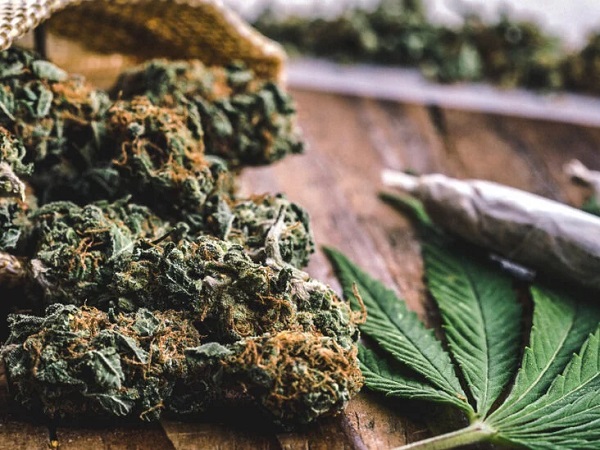
The appropriate dosage of cannabis for sleep can vary depending on the individual, the type of cannabis product used, and the severity of the sleep disorder. It is important to note that cannabis is not recommended as a first-line treatment for sleep disorders and should only be used under the guidance of a healthcare provider.
If someone is considering using cannabis for sleep, they should start with a low dose and gradually increase it until they achieve the desired effects. It is generally recommended to start with a THC dose of 2.5-5 mg, which is considered a low dose, and increase by 2.5-5 mg increments as needed. However, it is important to note that some people may be more sensitive to the effects of THC and may require a lower dose.
The timing of cannabis use is also important. It is generally recommended to use cannabis 1-2 hours before bedtime to allow for the effects to kick in. Smoking or vaping cannabis can produce quicker effects, while edibles can take longer to take effect but may last longer.
It is important to avoid using cannabis in excessive amounts, as this can increase the risk of adverse effects such as anxiety, paranoia, and impaired cognitive function. Additionally, chronic use of cannabis can lead to tolerance and dependence, which can affect sleep quality over time.
Overall, it is recommended to consult with a healthcare provider before using cannabis for sleep, as they can provide personalized guidance based on an individual’s specific needs and health status.
How about mixing melatonin and CBD?
Mixing melatonin and CBD (cannabidiol) is generally considered safe, and there is some evidence that suggests that CBD may enhance the sleep-promoting effects of melatonin.
CBD is a non-psychoactive compound found in the cannabis plant that has been shown to have a range of potential health benefits, including sleep improvement.
Some studies have suggested that CBD may enhance the effects of melatonin by increasing the duration of its sleep-promoting effects and improving sleep quality. This may be particularly useful for people with sleep disorders, such as insomnia or sleep apnea.
It is important to note that the effects of CBD on sleep can vary depending on the individual and the dosage used. Additionally, CBD can interact with other medications, so it is important to consult with a healthcare provider before using CBD, especially if someone is already taking other medications.
Overall, combining melatonin and CBD may be a safe and effective option for those looking to improve their sleep quality, but it is important to start with a low dose and consult with a healthcare provider before using any new supplements or medications.
When should you talk to a health care provider?
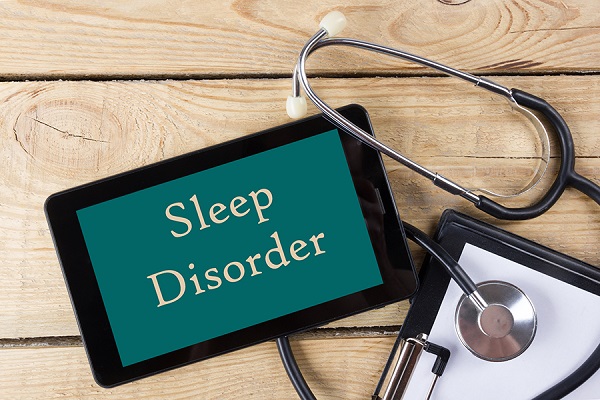
It is recommended to talk to a healthcare provider if someone is experiencing persistent sleep problems or has a sleep disorder, as they can provide a proper diagnosis and guidance on treatment options. Some signs that it may be time to talk to a healthcare provider about sleep problems include:
- Difficulty falling asleep or staying asleep on a regular basis;
- Daytime fatigue or sleepiness;
- Loud snoring, gasping, or choking during sleep;
- Restless leg syndrome or other sleep-related movement disorders;
- Changes in sleep patterns due to shift work or travel;
- Unusual behaviors during sleep, such as sleepwalking or night terrors.
A healthcare provider can perform a thorough evaluation of the individual’s sleep habits and medical history, as well as conduct tests or refer to a sleep specialist if necessary. They may recommend behavioral therapies, such as sleep hygiene education or cognitive behavioral therapy for insomnia (CBT-I), or medications such as melatonin or prescription sleep aids.
It is also important to talk to a healthcare provider before starting any new sleep aid, including natural supplements or medications, as they can provide guidance on proper dosage, potential side effects, and interactions with other medications.
Final Thought
Sleep is a crucial component of overall health and well-being, and it is important to prioritize healthy sleep habits and seek help if persistent sleep problems arise. While melatonin and cannabis products may offer some benefits for sleep, it is important to use them under the guidance of a healthcare provider and to be aware of potential risks and interactions. Other non-pharmacological approaches, such as practicing good sleep hygiene and seeking cognitive-behavioral therapies, may also be effective for improving sleep quality and promoting restful sleep.

